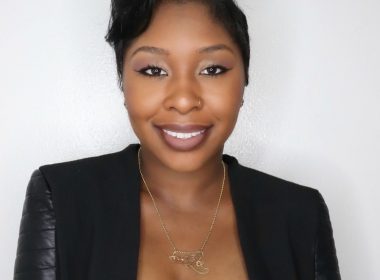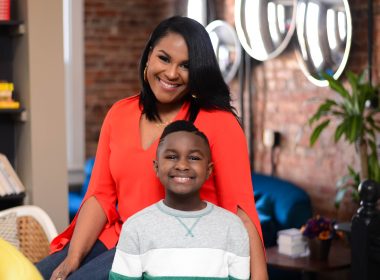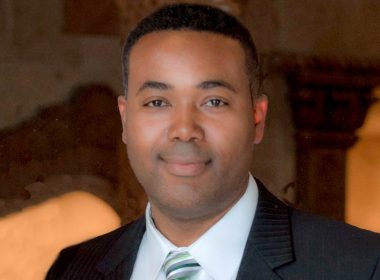
The White House United State of Women Summit brought over 5,000 people to the nation’s capital ready to address issues with women’s inequality. The two-day summit featured numerous speakers, celebrities, business leaders and activists who spoke about a better quality of life for all women and girls. Some of the topics discussed were economic empowerment, health and wellness and education opportunity. One of the advocates who spoke was Joyce Adolwa, CARE USA’s director of education programming. She gave rolling out an exclusive interview about the importance of educating women and girls globally in order for the economy to flourish.
What’s your mission today?
To contribute to the women’s empowerment work in terms of social justice and equity by starting early and how CARE’s work contributes to promoting a more just society by working with women and girls in developing countries.
Are the programs only for girls?
The education programs includes both girls and boys because our approach is “girls too”; it’s not “girls only.” That’s the whole message around equity. It’s not about just equality because we want to go beyond equality. Equality means your put in the same playing field for everybody. Equity means your adjusting the playing field so that everybody can play. That is CARE’s mission, to adjust. So when we think about the most marginalized people in education, it’s girls in developing countries. When you think about the 1.4 billion people who are living in poverty, the majority are women and girls. So, for us, our mission is to empower women and girls to work with men, not as a stepping stone to women, but as co-contributors to women’s empowerment so that the whole community is empowered.
Have you heard of Alicia Keys’ #nomakeup campaign? What is your opinion and what do you think it says to women and girls?
Yes! I think it’s a great idea. The reason why is that people wear makeup for different reasons. I love my makeup. But the reason I like the idea is because there is this move towards young girls thinking that they are not good enough if they don’t do something extra; that their natural self does not qualify. I think it’s important for us to change that. You are beautiful with or without makeup. The makeup doesn’t make you, but rather, you make the makeup.
Is that a topic that your programs teach?
Absolutely! Girls need leadership and to develop confidence and be assertive with understanding yourself and being able to organize yourself and to work with others to move an agenda is part of the work that we do in education. Most importantly for us is to help girls and women realize that they have rights and for men to realize that women and girls have rights too. It’s about appreciating yourself and the society appreciating you because in most of the countries where we work girls are perceived to be of a lower social class or status of men or boys. So how do we change that? How do we make girls become more self-confident, less self-conscience and occupying the spaces we need to be occupying? How do we open up those spaces to accommodate girls’ voices or a woman’s voice whether it’s engaging in new markets or any market value chain whether they’re producers or they’re the ones purchasing. How do we give them the purchasing power? How does society in itself, when you think about the policies or systems like banking, adapt and change to accommodate women and girls in the workforce. It’s more than just makeup and that’s why I appreciate the lesson she is trying to teach.
Where is CARE located?
CARE is in 95 countries and we have over 800 programs out of which 152 are for education in 52 of those countries.
What age group do your programs cater to?
Our education programs are for kids that need to go to school. Globally we have programs from early childhood development up to some degree of tertiary education. It is not university level. Our focus in education is to facilitate kids transitioning through the education cycles. It’s early childhood development, primary school going into secondary school and then transitioning either into work or tertiary education. We also focus on marginalized groups. You have 62 million girls out of school today.
Just thinking about that is astonishing and disheartening.
Yes. When I think about it, it’s the entire population of Kenya plus half of Uganda being out of school. Actual countries. What’s crazy is that there is a lot of research that indicates some developing countries lose up to a billion dollars a year for failing to educate adolescent girls at the same level as boys. So when you think about that and you think about 62 million, that is a lot of economic power that is not being exercised.
It’s sounds like they are sabotaging themselves.
I agree. I have nothing to add to that.
They are truly setting themselves up for failure.
Exactly. And I like what President Obama said about “societies that perpetrate violence against women, because economic disempowerment is a form of violence in itself, they have no future.” You cannot decide that you will only watch half of the sky. You have to come up with the realization that as human beings women do have a lot to contribute and that they have skills and capabilities just like men that need cultivating. Women can also connect with economies and produce to the same level as men. That is equality and that is where we are moving to. Equity.
I think the phrase, “Women work for my economy but our economy needs to work for women,” says it best.
Exactly. We have to create an enabling environment. Women by nature, the fact that we are mothers, caregivers- not that men are not- but generally the domestic workload falls on women such as childcare. The economy has to build structures that are supportive of the woman and that is where equity comes in again. Once you level the playing field, you are adjusting for women. How do you adjust the workforce for a manager not wanting to hire a woman because she can get pregnant and will need to take time off and a man cannot have children? How can you adjust the schedule to accommodate a single mother that may need to drop her kids off to daycare and pick them up early. What we’re looking for in development is not just a rich community. It is a healthy communities.
I believe healthy communities would make a community rich overall. The world is on such a get rich scheme, we ignore the unhealthy processes to make a quick buck. We’re gluttonous, stagnant and a lot of men of power feel that allowing a woman to rise above them professionally is a sign of weakness.
And that’s the problem. Why should men feel like they are weakened if they give it up to a woman? Why should women feel like they have to demonstrate a certain level of masculinity to hold positions of power. That is an imbalance and that is one of the things that CARE works to improve. We want to shift those mindsets. Lets look at the catalysts that drive poverty and part of those catalysts are embedded in our economic, social and political ways of thinking, governing and relationships that govern the way women interact and which spaces women can and cannot occupy. Unless we govern those mindsets and relationships that can really dictate the heart of poverty, then we will not come out of poverty.
I see how passionate you are about these subjects. What made you start working with CARE?
I love working with children and being from Kenya, I’ve had interaction with CARE and was inspired by their work. It’s one of those things where you want to work with a company
What is CARE’s core end goal?
Our end goal is social justice and equity. If we address those two, only then can poverty be eradicated.










